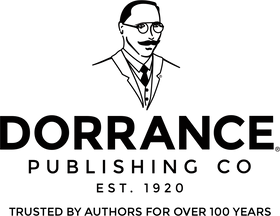Son Of Prince Edward County
Son of Prince Edward County is a magnificent inspiration to those of any age and of any race. This book is an example of overcoming boundaries and working hard for what you want and believe in. The story of Twitty J. Styles is his firsthand experience with the strike that took place in Prince Edward County and Farmville, Virginia. He shares the hardships that he experienced in grade school, the military, and college. Although this book is a collection of Styles’s struggles, it also shows the glory of the people and students that he has affected over the years.
About the Author
Twitty J. Styles, Ph.D. is an author who enjoys spending time with his family, friends, and colleagues from all over the world. Styles also enjoys golf, traveling, museums, and reading.
Check out this great review!
Son of Prince Edward County, by Dr. Twitty Styles, provides a powerful glimpse into the challenges faced by a young African American growing up in segregated Virginia during the 1930s and early 40s -- and the further challenges presented by discrimination even after he became an accomplished professional teaching at a fine liberal arts college. This is a book propelled by a passionate commitment to justice and a very generous outlook on life. There are many themes explored and lessons offered in this autobiographical work. The fundamental importance of family in providing inspiration, encouragement, sympathy, and material help to people facing societal challenges is a major one. Also, is the importance of strong determination and persistence. The author's route from a small-town segregated public school "educational environment where supplies and facilities were inadequate, unequal, crowded, and meager," to the GI-Bill-supported graduate program in biology at NYU, was characterized by financial and social hurdles, recurring setbacks, and the relentless need for hard work. It was a route Dr. Styles was determined to travel in its entirety to a successful end, and he did so, but the course was severe, and a less-determined individual might well have chosen the softer path leading to failure. Importantly, and commendably, there is neither triumphalism nor bitterness in this account. Injustice is clearly delineated and the reader is made to see it through a very sharp lens, but there is no self-pity, just a convincing realism regarding circumstances that has a powerful impact on the reader.
I have known the author as a colleague for more than three decades. He is first and foremost an educator, intensely devoted to his students. There is an old question in education: do you teach subjects or do you teach students? What is the mix between presenting (or demonstrating) the material on the one hand, and engaging students to inspire and motivate them on the other? Dr. Styles never neglects the latter. His life-long personal experiences and his many encounters with injustice narrated in this book have resulted, not in resentment, but in an extraordinary ability to sympathize and empathize with students as they struggle with the challenges of the classroom -- and with life in general. The set of anecdotes he provides of interactions with students in his biology classroom (and laboratory) are one of the most important strengths of this book. Biography, and especially autobiography, are always powerful instructors since they inevitably introduce you to different life experiences and new perspectives. This book is no exception. For those who grew up in a privileged and secure environment, it can be very instructive to visit the life experiences of one who did not -- but also one who emerged from those experiences as a marvelously mature, wise and decent human being.
Clifford Brown
Robert Porter Patterson Professor of Government
Union College
Published: 2019
Page Count: 247


